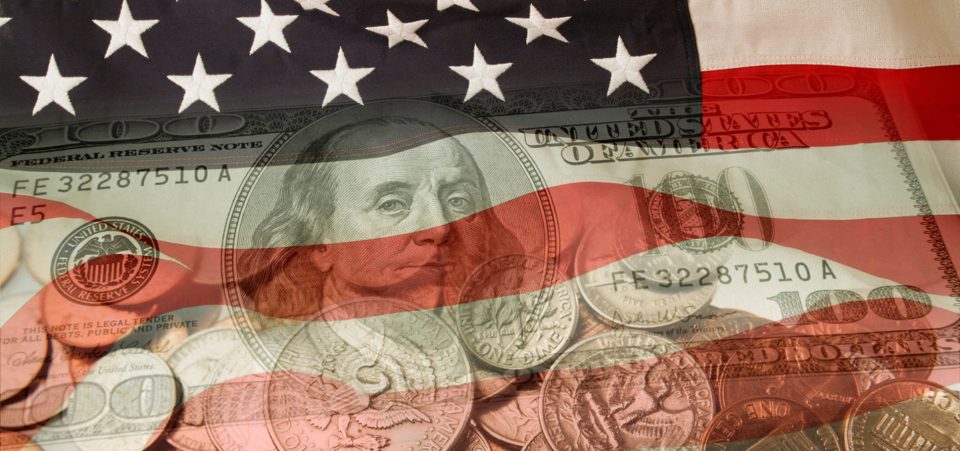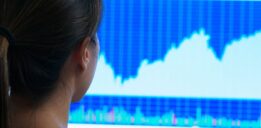Bullish Market Predictions Are Fueling the Stock Market Bubble
The optimism over Trump’s “Make America Great Again” slogan may have inflated the biggest market bubble ever. Yet the continued euphoria on Wall Street conceals the potential for another major stock market crash and a financial crisis. Private investors and most analysts continue to inflate the bubble as if everything is going well.
It isn’t. Yes, Wall Street has set successive records, even though it can’t seem to get past the current high. However stock prices are high, with some sectors such as energy, pharmaceutical, and defense doing especially well, because of solid political considerations that are favoring them. But then there is the tech sector, which has hit stratospheric levels.
However, there have been minor hints of a correction. These are the warning signs that something big is about to happen. The tech stocks were already high in November. Since Donald Trump was elected, they have gained over $3.0 trillion. Part of the rise came thanks to expectations that the U.S. economy would experience a significant acceleration.
Also Read:
Stock Market Crash 2017? This Could Trigger a Stock Market Collapse
Warren Buffett Indicator Predicts Stock Market Crash in 2017
That would drive actual earnings rather than expected ones. The combination of lower taxes on businesses and individuals and greater spending on infrastructure was going to the rest of the magic. Surely, “Make America Great Again” has made a big splash on Wall Street, but it hasn’t had any effect on Main Street.
Meanwhile, the ratio between the price of the shares and earnings, known as Shiller PE Ratio (named after economist Robert Shiller) issues a dire warning of a stock market crash. The S&P Index is hovering in the high 20s, going as far as 28 against an average over the long run of 16. That’s the same level as it was ahead of the market bubble of 1929 and 2008. Yet the economists keep speaking as if the current rally is a matter of fact. The economic and financial predictions are optimistic–too optimistic, in fact.
The financial analysts and economists spend their days producing complex mathematical models. You’d think they were the heirs of Pythagoras, Newton, Gauss, and Einstein, judging by the complexity of the math involved. Yet, however, you manipulate the equation, it will always be based on the past. That’s why financial analysts often get their stock market predictions jammed.
The Stock Market Bubble Could Burst Any Moment
The famous French philosopher Voltaire, who played no small role in influencing the likes of Thomas Jefferson, was weary of certainty. He said, “uncertainty is an uncomfortable position, but certainty is an absurd one.” Is there a better way of describing the mistakes of financial analysts and their stock market predictions?
Estimates can certainly be useful, but they must always be taken with whole mountains of Himalayan salts. Predicting the stock market is an art that combines many disciplines and instincts. Yes, eventually investors must choose where to put their money. Past performance is a useful tool, but there are bigger risks to consider.
Bullish stock markets rely on an overall sense of optimism. Any careful analysis of the current state of the world suggests optimism is not a sentiment we can afford. There are huge risks, and forecasts or expectations should be less mechanical.
So, what might a reasoned but not overly mechanical analysis predict? Will the bull continue to ride on Wall Street? That’s the billion-dollar question, of course. The election of Donald Trump and his tax cut promises have no doubt contributed to the current market rally and the Dow hitting well over 20,000 points. Yet the rally itself is a product of chance.
Indeed, during the election campaign, Trump as seen as an obstacle for the financial markets. His election was supposed to have crashed the markets. That error that has proved to be enormous now, bigger then even the mistake made by pollsters who predicted a Hillary Clinton victory in November. Now, the “Russiagate” scandal has cast a shadow over Trump’s tenure at the White House.
He risks impeachment, even though the evidence of wrongdoing—in the form of colluding with Russian authorities to manipulate the U.S. election results—remains specious. However, the media is pushing the narrative relentlessly.
It’s pushing Russiagate to the point that it could well succeed in leaving the United States in a political chaos not seen since the days of the Civil War. Wall Street would interpret the rising political uncertainty in Washington as a bearish factor, sending the markets to a crash and investors rush for the fire exits.






